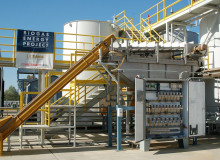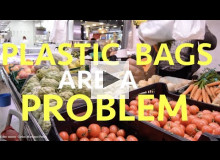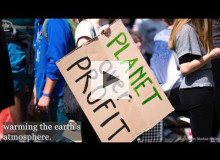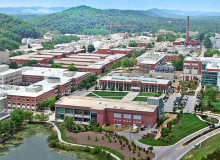emissions
Mandela Washington Fellow
Most people in sub-Saharan Africa still use a wood fire to cook food. Aisata Ibamie, a young renewable energy engineer from Cameroon, has a low-tech solution to reduce indoor air pollution and save trees.
George Washington University
The narrative presented in the media was clear: the COVID-19 lockdowns allowed nature and the environment a temporary reprieve. But how much did lockdown really impact air pollution and greenhouse gas emissions?

A view of the Forbidden City from Jingshan Park in Beijing. (Daniel Mathis/Creative Commons 3.0)
Planet Forward Correspondent | George Washington University
Today is the final day of COP26. How should we reflect on the conference? What discussions remain to be tackled?
Planet Forward Correspondent | George Washington University
There are only two days left at COP26, and while much progress has been made, there's still more to do. Today learn about how reducing methane could change our climate's course, and explore packaging challenges.
Planet Forward
The biggest climate conference of 2021, COP26, took place in Glasgow from Oct. 31-Nov. 12. You probably heard a little something about it. But the topics they exploring were vast — and vital.
To help get informed about the topics that will help us... Read More
Planet Forward Correspondent | George Washington University
Day 2 at COP26: Today we look at the economic benefits of climate mitigation, what "Net Zero" means, and how feminism and environmentalism are connected.
George Washington University
A seminar in Stockholm, which aims to be fossil fuel free by 2040, had this student examining the culture and lifestyle that has a much smaller emissions footprint per capita than we do in the United States.
George Washington University
Plastic bags are a problem. But are bag bans the solution? Here's the truth behind plastic, paper, and cotton tote bags.
George Washington University
Overpopulation is a global issue that leads to the increased use of vehicles by humans, which in turn causes a heightened amount of CO2 emissions to be released into the environment.
The University of the South
Post-doctoral scientist Neil Williams and his team discover an entirely new chemical mechanism for CO2 sequestration using household humidifiers and hotdog cookers.




.png%3Fitok=f4onPnmC)




